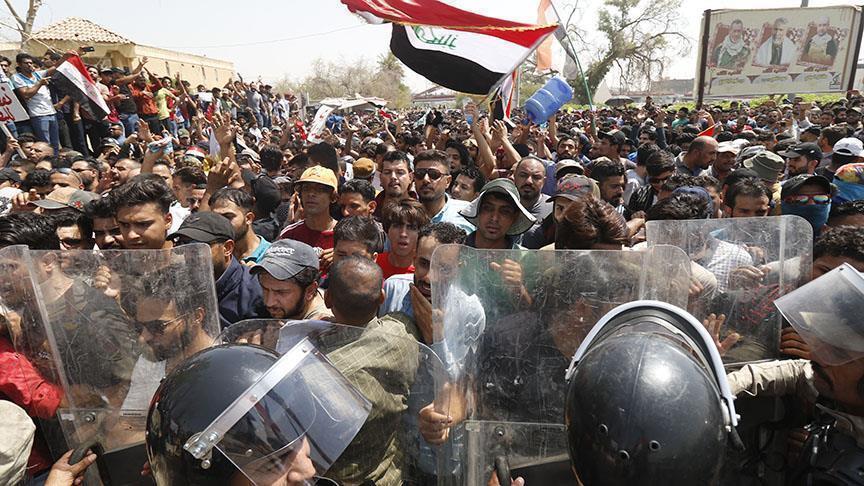Azerbaijani expert explores causes of Iraq's political crisis Tofig Abbasov on Caiber.Az
The ongoing political crisis in Iraq has deepened further in recent months. To a certain extent, this is due to the fact that following the results of last year's elections, it was not possible to form a government and the country is governed by an interim leadership. In July of this year, the pro-Iranian Coordination Forces nominated their candidate, Muhammad al-Sudani, for the post of the Iraqi prime minister, which served as a trigger for a new wave of unrest. Crowds of supporters of Ayatollah Muqtada al-Sadr, another contender for the post of prime minister, attacked government buildings.
Commenting on Caliber.Az the current situation in Iraq, Azerbaijani political scientist Tofig Abbasov stressed that the current atmosphere of internal political disorder in this country is directly related to the split of Iraqi society and the activities of certain political forces interested in destabilising the internal political situation.

The political scientist points out that the main political prerequisites for the current processes were laid during the overthrow of Saddam Hussein's regime and the coming to power of Nuri al-Maliki.
"It was during the period of al-Maliki that various sectional communities were created in Iraq, which began to act with religious propaganda. The current internal political instability is the result of a long–term split of society and the activities of forces interested in further destabilisation of the internal political situation. At the same time, religious forces seek to take seats in parliament," Abbasov said.
An extremely negative consequence of such instability was, first of all, the collapse of the country's economy, he believes.
"The same circumstance further aggravates the difficult social situation of the population. And this is the main element of the ongoing unrest in the country. Meanwhile, as it happens in such situations, external players pursuing their own interests have become more active here. Iran is an example of such an interest. This country has a great political influence in Iraq. On the one hand, this factor can be considered in an economic context. The fact is that both countries have developed state programmes to reduce the unemployment rate. On the other hand, Tehran intends to realise its religious aspirations here. This is also evidenced by the fact that most of the protesters are supporters of religious forces that Iran actively supports.
As you know, one of the main principles of Tehran's foreign policy is aimed at exerting its political influence on Muslim countries by spreading religious dogmas and principles. But in Iraq, in addition to Iran, there are geopolitical interests and the West and the United States are constantly present in this region. Saudi Arabia also does not remain aloof from the events taking place there, and Iraqi Sunni groups are actively cooperating with the government of this country. The settlement of such a difficult negative situation today largely depends on the prime minister's political will and the prudence of the protesters - whether they will compromise or categorically refuse," the analyst emphasises.
Another important point of the Iraqi events, according to Abbasov, is the general dynamics of most conflicts in the Middle East.

"During the Cold War and after it, the Middle East was the main focus of conflicts in the world. And there are reasons for this. The main one, of course, is oil fields. About 30 per cent of the world's oil is concentrated in this region. Another reason is related to the increased introduction of religious interests in some countries, such as Iran and Saudi Arabia. And the third source of conflicts is the clash of geopolitical interests of external players, for example, the United States and Russia.
One way or another, the current protests in Iraq may have negative consequences in the region. This can also lead to a number of global problems. One of these problems is the increase in the flow of refugees to European countries. Paradoxical as it may sound, the governments of some European countries are not averse to accepting refugees at all. This creates a basis for the economic development of these countries since from a demographic point of view, the level of ageing in Europe exceeds the norm, Abbasov summed up.








